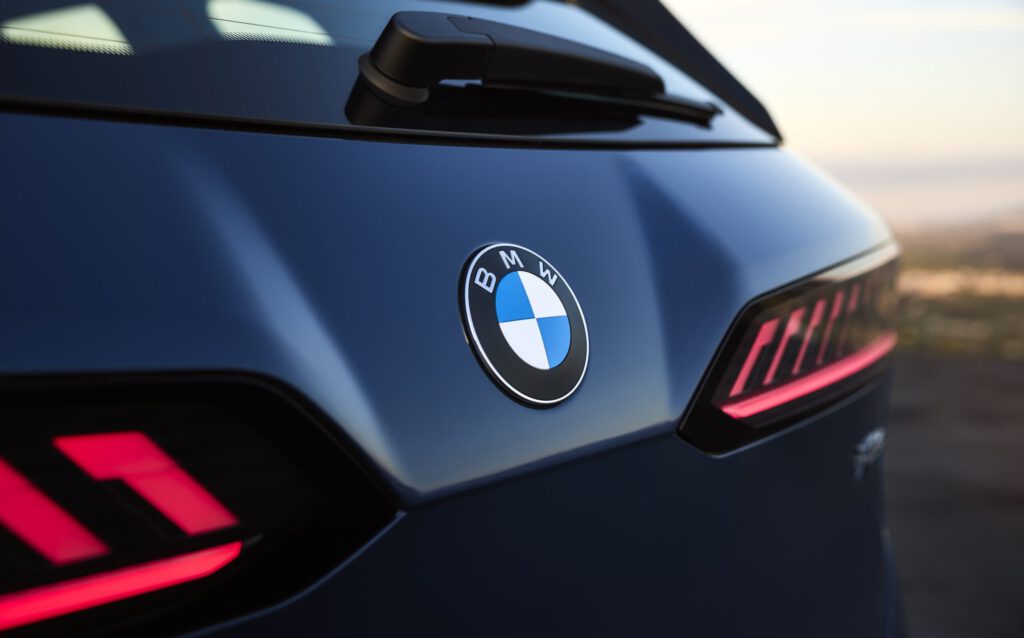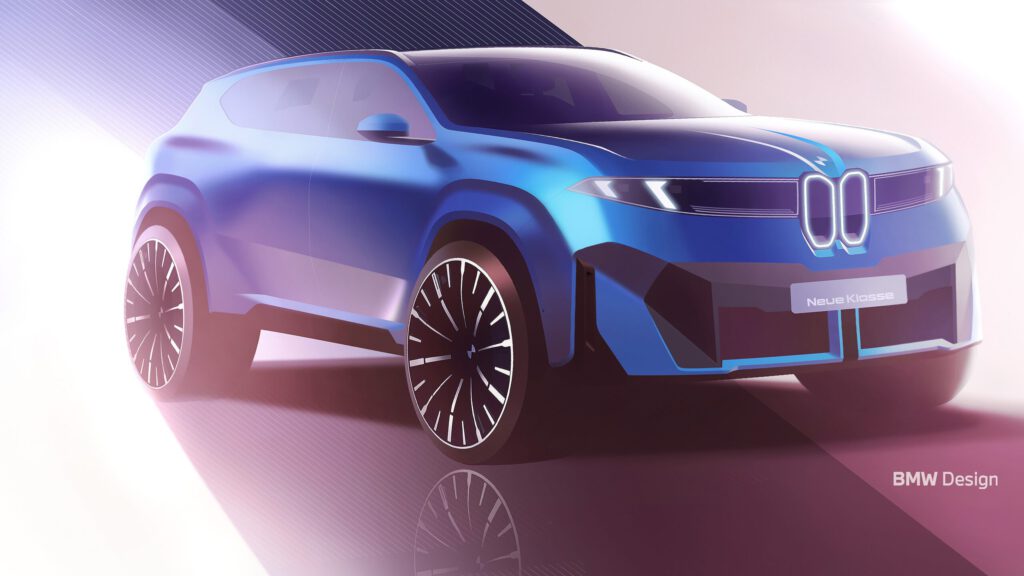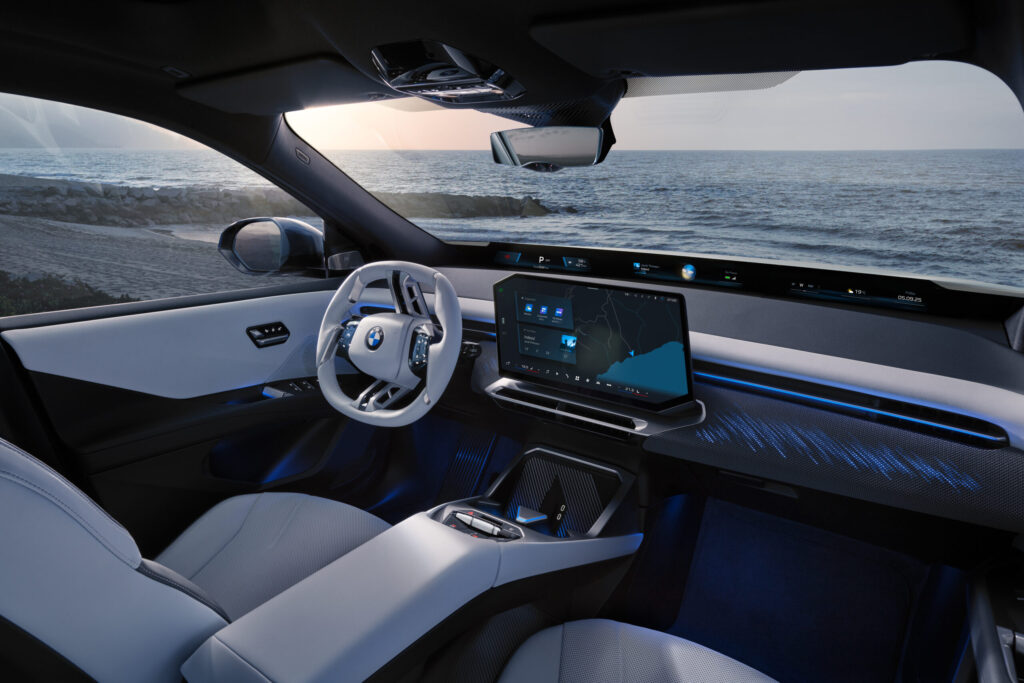
For a long time, there was only bad news for Mercedes, Volkswagen and BMW. This is changing and offers opportunities for Swiss automotive suppliers.
Germany’s flagship product, the car, was actually scheduled to be banned by 2035.
But now the industry, which was actually doomed to extinction due to its focus on zero-emission vehicles, is on the move once again.
New confidence
The world needs more flexibility and a departure from the EU ban on combustion engines, Mercedes CEO Ola Källenius told the German newspaper ‘Welt am Sonntag’.
In addition, the CEO of Munich-based carmaker BMW spoke out the same recently at the presentation of the first production model of the “Neue Klasse” (New Class) around the iX3.
“The likelihood of these plans being implemented in their current form is extremely low,” Oliver Zipse told the “FAZ am Sonntag” newspaper, referring to the pending EU ban on combustion engines for new cars by 2035.
Avoiding a dual world of old and new
After a period of weak demand and structural uncertainties, the German automotive industry is showing signs of recovery.
With the launch of its “Neue Klasse” program, BMW in particular is signaling its ambition to successfully shape the transformation to electric mobility and digitalization.

The concept, which was recently presented to the public and is reminiscent of the launch of the completely redesigned BMW 1500 in 1961, includes new vehicle designs, software-based control systems, and a forward-looking focus on electric drives, even for long distances.
“We want a new future for BMW,” said Zipse, “without a dual world of old and new technologies.”
Double bottom for safety
Thanks to its high level of engineering expertise, BMW wants to set technological benchmarks, but the “Neue Klasse” is a global product, because this is the only way a company can remain at the top into the future.
BMW has a ‘robust development and validation process for both physical components and software to avoid product defects and delivery problems’ it added.
The key here is not to be dependent upon any single supplier.
“That’s why we are developing the battery technology ourselves, and have supply contracts with several leading cell suppliers for mass production,” emphasized the top manager.
Chinese manufacturers lead in China
The local models in China feature innovations that BMW has developed for China in collaboration with local tech partners within China.
“The next decade in the international automotive industry will be a race to survive,” Zipse said with conviction. However, he added that a price war is not a sustainable business model.
He is also eagerly awaiting the rise of Chinese manufacturers.
“In Europe, European manufacturers have always had by far the highest market shares, and in the US, American manufacturers have,” he said.
Why should this be fundamentally different in China, the BMW CEO asked rhetorically.
Ems, Sika, and Oerlikon benefit
These prospects open up new opportunities for Swiss automotive suppliers.
Many local companies, from EMS-Chemie to Sika to OC Oerlikon, are already closely integrated into the supply chains of German automotive groups, whether with precision components, electronics, special materials, measuring instruments, or software solutions.
According to industry observers, the innovative strength of Swiss companies, combined with their high reliability, will become even more important with the restart of the German automotive industry.
BMW has even prepared everything for self-driving cars in its “Neue Klasse”. Swiss inventors could also play a major role here.
Not producing fuel themselves either
If German car manufacturers were to not only develop battery technology, but also produce the batteries themselves, they would be venturing onto thin ice.
“As car manufacturers, we don’t produce the fuel ourselves either,” emphasized the CEO of the BMW Group, which is dominated by the Quandt family of entrepreneurs.

If BMW were to manufacture the cells itself, the company would have only one supplier: itself.
“This would mean we could no longer use competition in the market to our advantage, but would still be dependent on raw materials,” explained the car manager.
Anyone who tries to become completely independent cuts themselves off from innovation and competition.
In the end, this is the much greater risk, because what do you do if you have invested in cell technology that is obsolete after two years?
Four additional options with potential
Switzerland can therefore also reposition itself and benefit from the upturn in the German automotive industry through innovation.
In addition to electric cars, Zipse sees four additional options.
Diesel engines are becoming increasingly efficient and could contribute to CO2 reduction. Pollutant emissions from gasoline engines would also be further reduced.
Plug-in hybrids would enable everyday driving, and hydrogen fuel cells are also of interest.
“Especially in densely populated cities like Tokyo, there will never be sufficient charging infrastructure for electric cars,” said the BMW boss, clarifying the developments.
Helping climate, customers, and industry
If multitudes of people around the world said that a used car with a combustion engine was a better solution for them than a new electric car, it would not help anyone.
Neither the climate nor customers, nor a massively shrunk automotive industry in Europe.
This means that Switzerland can once again find hope in an area that had almost been written off.
And today, according to the Merbag Group, Mercedes is also making a comeback on the world stage with the new GLC SUV, the counterpart to the BMW iX3.
07.09.2025/kut./ena.




